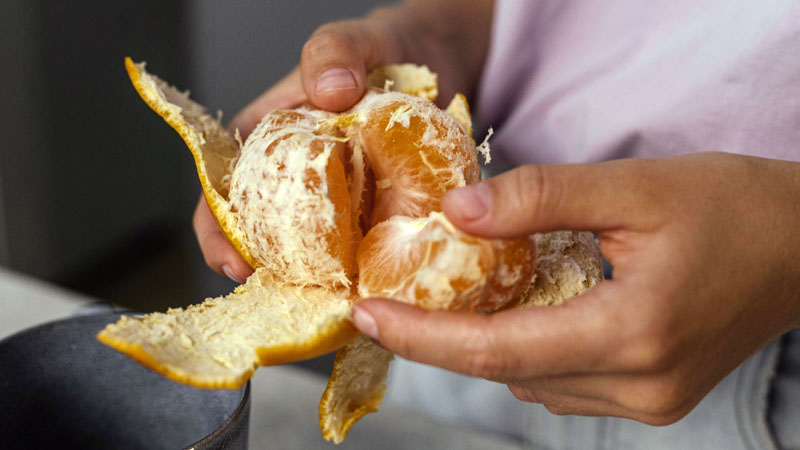A digestive health expert is urging people to change a common habit when eating fruit—removing the white, stringy parts often dismissed as unappetizing. According to Dr. María Muñoz, a specialist in gut health, peeling off these fibrous strands, known as the albedo, could mean missing out on significant health benefits.
Posting on social media under the handle @dramariamunoz, Dr. Muñoz challenged a widespread eating habit, asking, “Are you one of those who remove the white part of tangerines and bananas? That little thread you pull is called albedo, and it is more important than you think.”
Dr. Muñoz explained that the albedo serves more than just a protective role in fruit. “Albedo is not there by chance. It’s a natural defence of the fruit. It protects the pulp from insects and microorganisms, reduces oxidation, serves as a nutritional reserve for fruit development, and defends it from solar radiation,” she said.
What’s more, the albedo is packed with nutrients that contribute to overall well-being. “It is rich in pectin, a fibre that slows down sugar absorption. It also contains vitamin C and flavonoids that strengthen your immune system, your skin and blood vessels. It provides essential minerals such as potassium and magnesium.”
In her concluding remarks, Dr. Muñoz summarized her advice by saying, “In short, eating the fruit with albedo is a small gesture, but with great benefits for your health.”
Her recommendation aligns with broader scientific research highlighting the role of vitamin C in immune system function. One study, published on the PubMed Central (PMC) platform, explained that “Vitamin C appears to exert a multitude of beneficial effects on cellular functions of both the innate and adaptive immune system.”
The study emphasized that vitamin C is not just a powerful antioxidant. “Although vitamin C is a potent antioxidant protecting the body against endogenous and exogenous oxidative challenges, it is likely that its action as a cofactor for numerous biosynthetic and gene regulatory enzymes plays a key role in its immune-modulating effects.”
Furthermore, it noted that “Vitamin C stimulates neutrophil migration to the site of infection, enhances phagocytosis and oxidant generation, and microbial killing. At the same time, it protects host tissue from excessive damage by enhancing neutrophil apoptosis and clearance by macrophages.”
So next time you’re tempted to peel away those stringy white bits from your fruit, it may be wise to leave them on—for your health’s sake.

